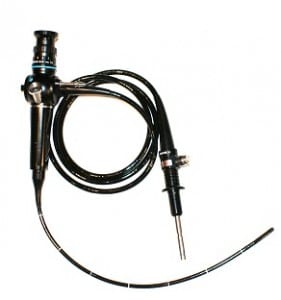
The Los Angeles Times reported on March 4 that the superbug outbreak now includes L.A.’s Cedars-Sinai Medical Center, which said it has discovered four patients infected with a deadly superbug from a contaminated medical scope, while 68 others may have been exposed.
Cedars-Sinai said it began investigating possible infections after a superbug outbreak last month at UCLA’s Ronald Reagan Medical Center. Five people were infected there. Two died after being treated with CRE – carbapenem-resistant Enterobacteriaceae – contaminated scopes. Olympus, a scope maker for the Center, faces scrutiny over the patient deaths and infections.
Olympus Scopes spawn Superbug
Cedars-Sinai said patients may have been exposed to the deadly superbug from one Olympus Corp. duodenoscope that the hospital used from August 2014 through mid-February. Cedars-Sinai said one of the four infected patients has died, but it was unrelated to a CRE infection.
Last week, Cedars officials said they were investigating the potential link between CRE infections and the scopes used in a procedure known as ERCP, or endoscopic retrograde cholangiopancreatography. CRE is highly resistant to antibiotics and can kill up to 50% of the people it infects.
Half a Million Americans Scoped Yearly
In the USA, some half a million people undergo ERCP, wherein a thin, fiber-optic scope is threaded down one’s throat to diagnose and treat problems in the digestive tract such as gallstones, cancers, bile duct blockages.
The infections at UCLA and now Cedars-Sinai are the latest in a string of similar scope-related outbreaks across the USA. The FDA in Feb. 2015 said it knew of 135 possible patient infections linked to duodenoscopes from Jan. 2013 to Dec. 2014. The FDA also said scope makers have twice failed to show scopes can be cleaned to completely kill superbugs.
FDA Slow to Respond to Scope Superbug
Federal lawmakers and patient-safety advocates have criticized FDA for its slow response to the problem of contaminated medical scopes amid earlier warnings.
Olympus responds to Scope Problems
The industry leader for gastrointestinal endoscopes, Olympus said that it’s working with regulators, medical societies and customers on the development of “additional safeguards to prevent infection associated with endoscopic procedures, including ERCP.” According to the LA Times, the company also noted that “while any complication affecting a patient’s health is a serious matter, the reported incidence of infections is extremely low” with ERCP.
The FDA did act quickly to warn hospitals after the superbug outbreak reported by the Times on Feb. 18, telling hospitals and doctors that following manufacturers’ cleaning instructions does not ensure scopes are free of bacteria trapped in the devices’ tiny crevices.




